NeedsMap: Visualizing and matching social needs through an online cooperative platform in Turkey
“Spotlight Interviews with Co-operators” is a series of interviews with cooperators from around the world with whom ILO officials have crossed paths during the course of their work with cooperatives. On this occasion, ILO interviewed Mr Ali Ercan Özgür, one of the founders of “İhtiyaç Haritası” (Needs Map) in Turkey.
Q. How and why have you gotten involved in NeedsMap?
I have been working on socio-economic mapping and data-driven maps throughout my professional life. In this period I got a chance to observe first-hand how neighbourhood based geo-data mapping can be of great use for policy makers especially in the local government. In 2012, I founded a web platform called City Kid that documents urban users’ problems through photos and videos, and enables users to share them directly with local authorities. In 2015 a group of us started thinking of a map based system using a web-based application that would address urban and neighbourhood level needs for social development.
Mert Fırat, a well-known Turkish actor and a UNDP Turkey Goodwill Ambassador on Sustainable Development Goals also joined our discussions and we agreed on establishing a social cooperative that would match a common list of needs through a web-based platform. We thought a cooperative was the most appropriate institutional form reflecting our values around solidarity and mutual-help. In October 2015, we launched the beta version of NeedsMap (www.ihtiyacharitasi.org) at the UNDP Social Good Summit, which generated a great deal of interest from social development actors in Turkey.
Q. What is NeedsMap and how does it work?
NeedsMap is a map-based data matching platform based on in-kind transfers that brings those in need and those who want to help together. It matches basic needs of individuals (e.g. clothes, shoes, bags, coats, and blankets), as well as a range of needs for NGOs, public schools, cooperatives, voluntary groups, social platforms and community centres (e.g. volunteers, stationery, books, paints, computers, projectors, office furniture, etc.). It is a voluntary web platform that tackles poverty related social problems through a system of non-monetary contributions. In the past three years since it was first launched, NeedsMap has received 4 million visitors, reaching 100,000 users to match 550,000 needs equivalent to US$5 million.
In addition to the seven founding members who compose the Board and Audit Committee, we have four members who are in charge of its different departments (finance, volunteers, web platform, private sector relations, projects, public relations, and transaction operations). Having a platform cooperative has enabled us to share decisions and responsibility collaboratively in solving social problems on a neighbourhood basis. In our cooperative charter, we declare that the members and founders do not get any pay or shares from the surplus generated through the NeedsMap platform. We do not allow advertisements in our system nor do advertisement based fundraising. All the funding for NeedsMap is reviewed by our Board and members regarding how it should be spent.
It is critical for us at NeedsMap to be an effective and user-friendly social platform in the circular economy. We do not have any warehouses or stores but a volunteer-based cooperative platform that allows for thousands of needs to find supporters with only four staff members. NeedsMap has 10,000 volunteers who work in the field, in offices and in universities as well as in the digital environment. There are 55 NeedsMap Student Clubs established in universities across Turkey. We have a Volunteer Management Plan which allows volunteers who allocate more than 10 hours a week for two years in the NeedsMap system to become members of the cooperative. We hold an annual General Assembly and an annual Volunteers Summit, where volunteers convene to discuss our annual plan. We also organize monthly new volunteers’ events, where we welcome new people and ideas.
Q. Who are your partners? How do you select them? What do these partnerships entail from the partners side?
NeedsMap brings together an extensive number of civil society and private sector actors to bridge matching in a joint effort to address poverty. With its ever increasing user base, NeedsMap welcomes new partnerships, which include fintech enterprises and financial institutions. So far we have partnerships, including in kind and financial contributions, with TBWA, IDEMA, Kutu Film, DigiGuardians, Sanat Mahal, Grafx, Macenta, Özay&Demir Law Firm, and INOGAR. Currently we are establishing an Advisory Board to include NeedsMap friends and our key stakeholders. Five NeedsMap Desks have been established within Municipalities and Chambers of Commerce as part of NeedsMap in order to address offline needs and support matching.
Q. How do you see the prospects for the future of NeedsMap? Where do you think you need to go to next?
We would like to keep improving our existing technology with new geo, push notification and location based needs. We have just developed a neighbourhood based fintech system that responds to users’ needs to donate and buy goods to supply needs in our system.
We are also keen to share Needsmap’s mission and practices, with other social and platform cooperatives at the global level, starting with one developing country where we can test our system and methodology. In this regard we welcome collaboration with the ILO and other international organizations.
We prepared a five-year strategic plan last year, with the participation of various stakeholders and have identified three priority areas:
- Social Issues: The first priority area of our strategy is to continue focusing on the goals of poverty reduction, education and health including for children and refugees.
- Geo-Map Data Based new platforms: As a platform cooperative we prioritise supporting and opening our technology to institutions that fight poverty, social and economic development needs and want to benefit from geo-map data based platform technologies.
- NeedsMap Global: We are also ready to adapt our model for use in different countries in partnership with relevant cooperative and other social and solidarity economy organizations. We plan to organize NeedsMap hackathons with key stakeholders in countries that invite us in order to share our methodology and localize our system with them for their use.
—————
Spotlight interviews with cooperators is a series of interviews with cooperative leaders around the world, whom ILO officials have encountered in the course of their work with cooperatives. This article does not constitute an endorsement by the ILO.

